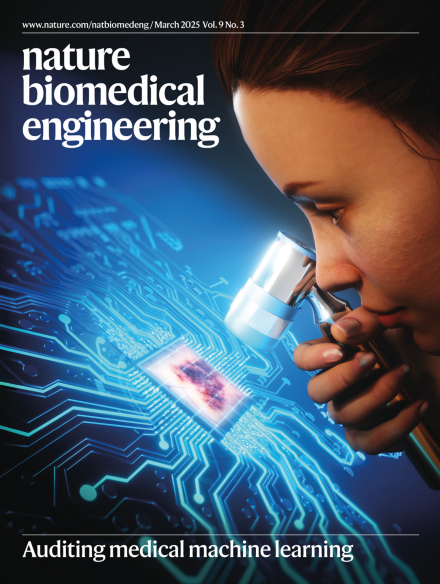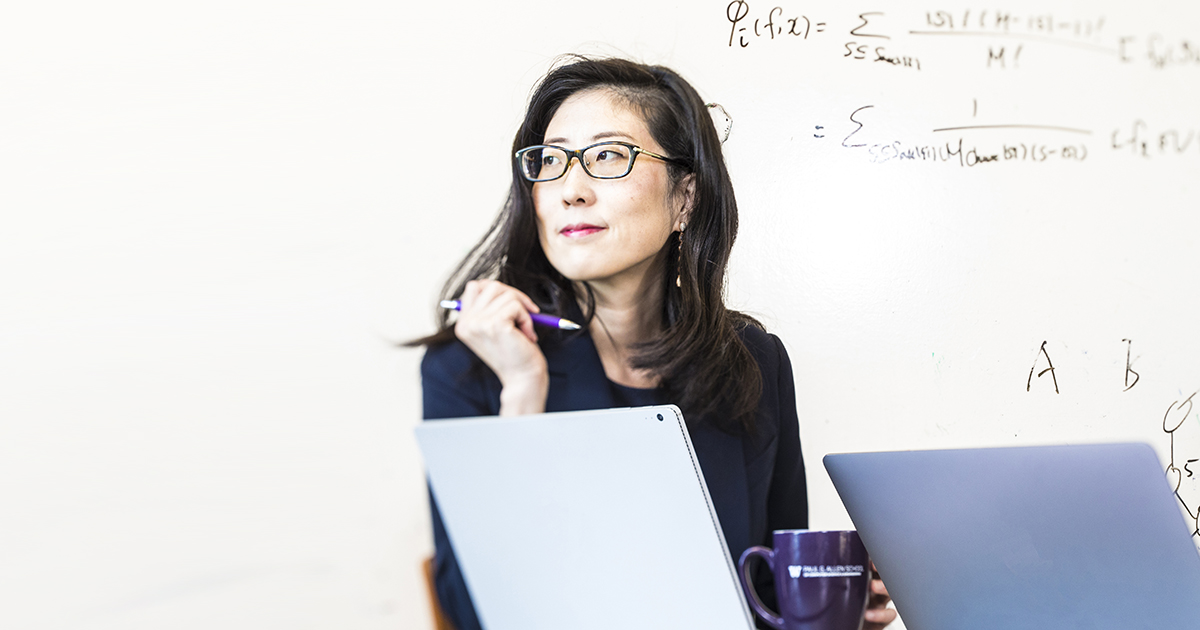Allen School professor Su-In Lee, who directs the University of Washington’s AI for bioMedical Sciences (AIMS) Lab, is shaping the future of biology and medicine through artificial intelligence. Her research focuses on fundamentally advancing AI and machine learning (ML) techniques to provide insights into complex biological systems and drive healthcare breakthroughs, transforming fields from basic biology to clinical medicine, including cancer biology, dermatology and critical care.
Lee’s groundbreaking work has earned her a long list of accolades. Most recently, the International Society for Computational Biology (ISCB) inducted her into its 2025 Class of Fellows. These fellows lead the field with their innovative research and service, reflecting “a career of significant impact and a dedication to the scientific community.”
“I am really grateful and honored to be named an ISCB Fellow,” said Lee, who holds the Paul G. Allen Professorship in Computer Science & Engineering. “This recognition fuels my desire to contribute further and push the field to the next stage.”

One of Lee’s most pivotal contributions to the field is her work on the SHAP, or SHapley Additive exPlanations, values. The technique uses a game theory approach to help explain the output of an ML model. Her research using SHAP techniques tackles the accuracy versus interpretability problem. Simpler models can be more interpretable at the expense of being less accurate, but complex models are more accurate but difficult to interpret. Instead, Lee and her collaborators balance the two to develop high-performance, expressive models that are effective for biomedicine.
Using SHAP values as a foundation, Lee and her collaborators developed a novel framework called Prescience that could predict and also explain a patient’s risk of developing hypoxemia during surgery. Their follow-up research CoAI, also known as Cost-Aware Artificial Intelligence, used SHAP values to reduce the time, effort and resources needed to predict patient outcomes and inform the treatment plan. Lee has also used SHAP values to understand factors influencing aging to better treat age-related disorders using the ENABL Age, or ExplaiNAble BioLogical Age, framework.
Lee has also developed explainable AI methods that can analyze biological data and find new therapeutic targets for diseases. She and her colleagues introduced ConstrastiveVI, a deep learning framework that applies contrastive analysis to single-cell datasets that help separate variations in the target cells from the healthy control cells during experiments. For Lee, explainable AI also has the potential to identify novel treatments for Alzheimer’s disease, which is one of the 10 leading causes of death in the U.S., and other neurodegenerative conditions. Lee has also used explainable AI to audit and dissect the reasoning process that AI systems use to analyze medical images, such as chest X-rays for predicting COVID-19 status or dermatological images for detecting melanoma.
“Su-In’s body of work has completely transformed how people analyze and interpret AI/ML models. Her SHAP approach is used by essentially the entire field, not only in computational biology but all of computer science,” said Trey Ideker, professor of medicine, bioengineering and computer science at the University of California San Diego.
In addition to her research, Lee has helped promote interdisciplinary education and collaboration. Since 2020, she has served as director of UW’s Computational Molecular Biology program. Lee has also played a pivotal role in establishing the Medical Scientist Training Program and Allen School collaboration to train Ph.D. students in both computer science and clinical medicine. She has also taken her leadership skills beyond UW as co-founder and co-chair of the Machine Learning in Computational Biology conference.
Lee’s fellowship follows on the heels of another ISCB recognition. For her contributions to AI and biomedicine, she received the prestigious 2024 ISCB Innovator Award, honoring leading mid-career computational biologists. Last year, she was the first woman to win the Samsung Ho-Am Prize Laureate in Engineering, often referred to as the “Korean Nobel Prize,” and was also named a Fellow of the American Institute for Medical and Biological Engineering.
Having transitioned from studying computer science to biology herself, Lee understands the challenges Allen School students may face in researching biomedical applications, but also the rewards.
“It would be great for the field, the world and science in general if more computer science students pursue computational biology,” Lee said.
Read more about this year’s ISCB Fellows and Lee’s research.


